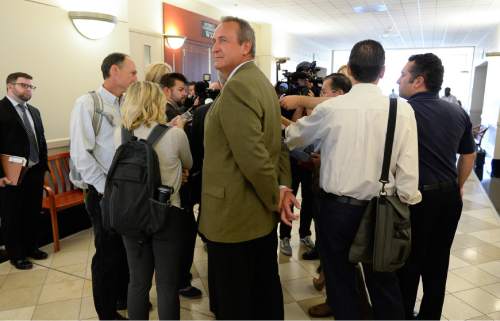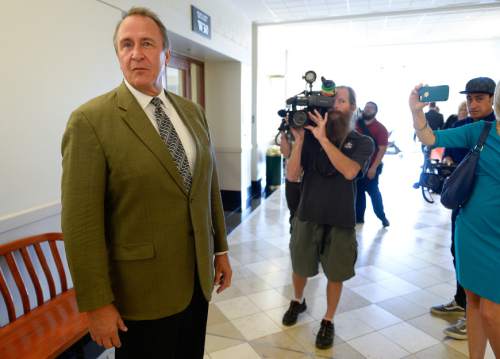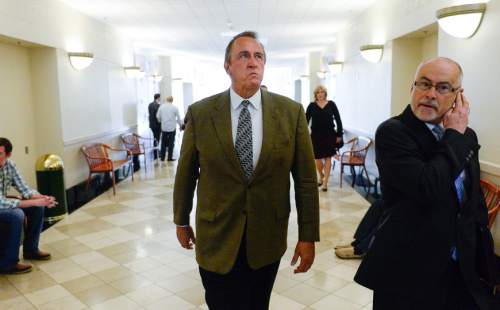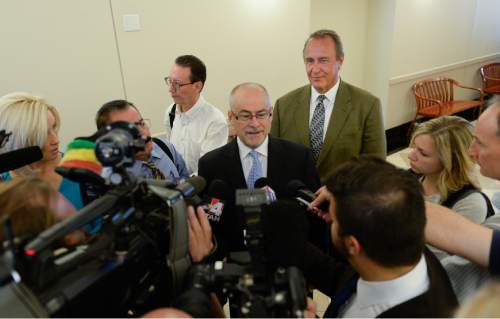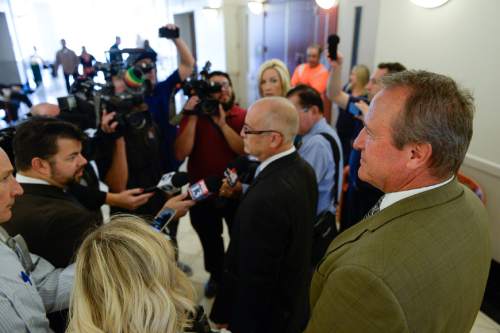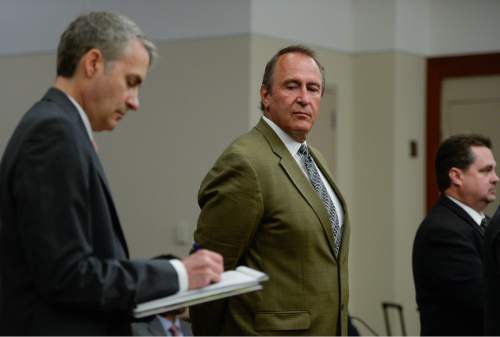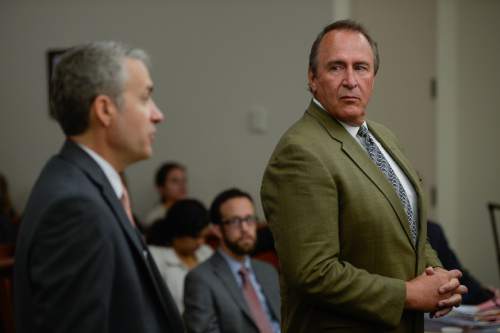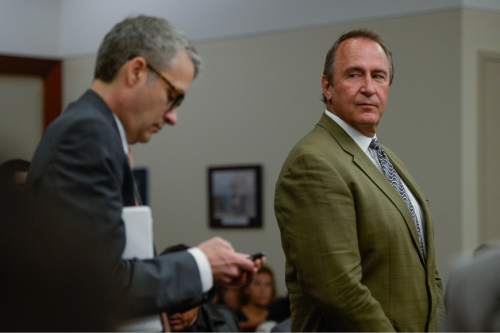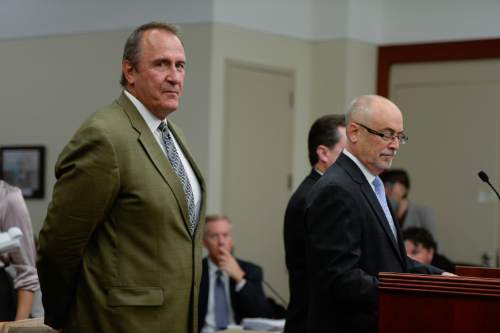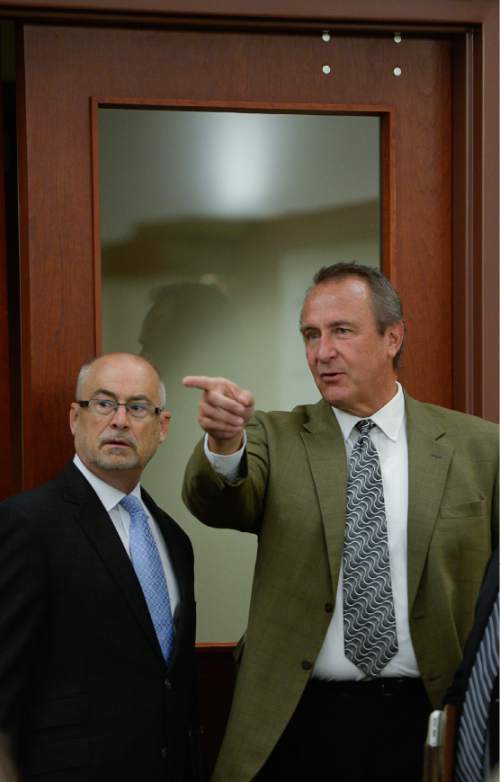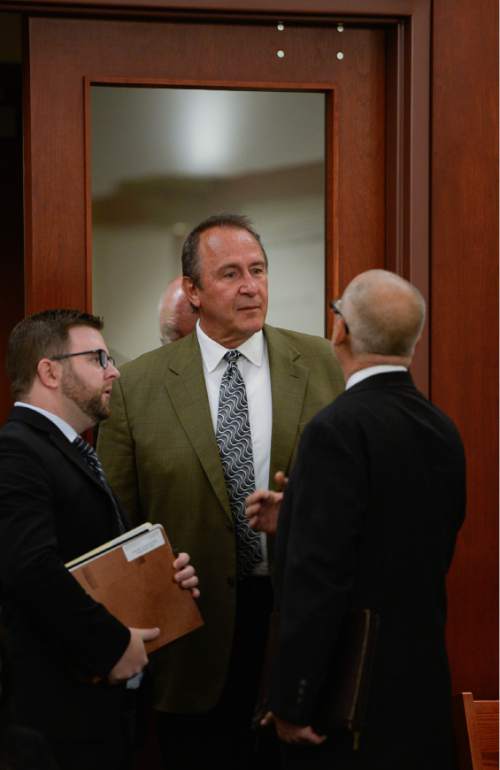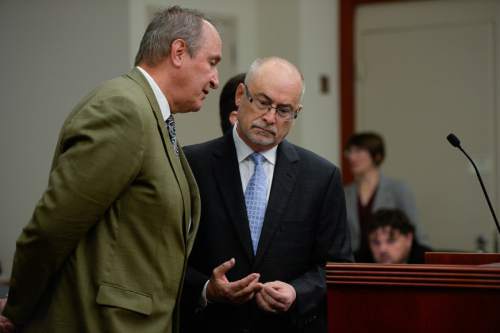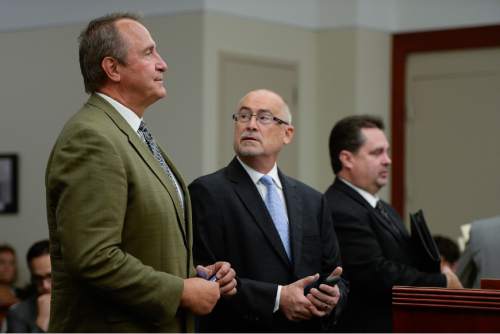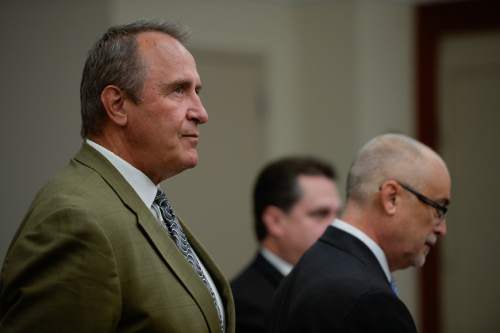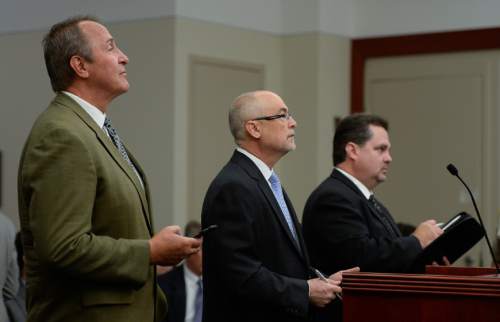This is an archived article that was published on sltrib.com in 2015, and information in the article may be outdated. It is provided only for personal research purposes and may not be reprinted.
The chief prosecutor of former Utah Attorney General Mark Shurtleff said Monday that the federal government is balking at turning over evidence in the case — a decision he suggested is meant to hide information about why the Department of Justice abandoned its own investigation two years ago and the possible conduct of some federal employees.
Davis County Attorney Troy Rawlings, who is prosecuting Shurtleff on public-corruption-related charges, asked a state court to assert its authority over the case and order federal prosecutors to turn over evidence in the probe that the DOJ's Public Integrity Section (PIN) shuttered back in September 2013.
"This honorable court should not allow the DOJ-PIN to assert control over the state of Utah's prosecutorial discretion as it relates to discovery obligations, particularly when some of the requests of the state of Utah may possibly relate to decisions within DOJ-PIN, or to federal employees," Rawlings wrote in a motion filed Monday in the Shurtleff case.
Rawlings declined to comment after a hearing in which 3rd District Judge Elizabeth Hruby-Mills set a two-week trial for Shurtleff to begin on May 10, 2016.
If federal prosecutors want to control evidence in the state case, "they should step up to the plate and prosecute the matter themselves," Rawlings wrote in the motion. "And, in the process, look at everyone with potential criminal exposure."
The federal team in 2013 "abandoned and washed its hands of this case," he wrote, " ... after some sort of a seemingly truncated and narrowly focused investigation with respect to a very constricted number of persons and events."
Shurtleff's attorney, Richard Van Wagoner, also expressed frustration that he and Rawlings must provide sufficient details to justify each request for information.
Even though the case is in state court, federal prosecutors are now saying "you've got to jump through all of our hoops before we'll produce anything for you," Van Wagoner said after the hearing. "I don't know if there are other things about the investigation that the federal government is not interested in disclosing, if there are other people who could be implicated."
In the past, state prosecutors have said they were frustrated that they had uncovered evidence that is best pursued by federal investigators, some of which involved U.S. Sens. Mike Lee, R-Utah, and Senate Minority Leader Harry Reid, D-Nev.
Lee has been tied by a Utah House investigative committee to former Utah Attorney General John Swallow, who its report says helped create a network of political committees meant to launder and hide hundreds of thousands of dollars of campaign contributions from the payday loan industry to political candidates.
Indicted St. George businessman Jeremy Johnson, whose allegations about his interactions with Swallow helped spark multiple investigations, also told agents that he had followed Swallow's directions and given donations above legal limits by getting others to put their names on them. The Federal Election Commission recently alleged in a lawsuit that Johnson had broken federal election laws by making the "straw donations," but Lee's office said he had not known about the path taken by that money given to his campaign.
Johnson also has said Reid may have gotten improper attention from the online-poker industry back in 2010, when Johnson and partners were processing poker payments through the now-defunct SunFirst Bank in St. George.
Reid's office has denied the allegations. Johnson has been named as a key witness in the Swallow and Shurtleff cases.
The intersection of the criminal prosecution against Johnson in federal court in Salt Lake City, a civil suit against him and his online marketing company in federal court in Nevada and the Shurtleff and Swallow criminal cases in Utah's state court is increasingly becoming a quagmire.
The FEC lawsuit against Johnson had angered Rawlings and Salt Lake County District Attorney Sim Gill, who is prosecuting Swallow, because the evidence came from interviews Johnson gave to state and federal investigators after he was promised immunity for his cooperation.
To support his Monday motion, Rawlings cited a disclosure by the U.S. attorney's office for Utah that it had demanded evidence from the Shurtleff-Swallow investigations from the FBI even though it had been recused from that inquiry. Federal prosecutors in Utah said their actions were justified by their duty to provide the defense in the Johnson case with all possible evidence. Rawlings noted the same standard should apply to his request for the information.
Shurtleff declined to comment after Monday's hearing, other than to say he wanted a trial as soon as possible.
A Republican who was the state's attorney general for 12 years, Shurtleff and Swallow — his handpicked GOP successor — were charged with multiple felonies in July 2014.
Shurtleff, 58, in June pleaded not guilty to five felony and two misdemeanor counts: three counts of accepting prohibited gifts, two counts of obstructing justice, one count of extortion or bribery to dismiss a criminal proceeding, and one count of official misconduct.
The case stems in part from trips Shurtleff made to Pelican Hill, a luxury resort near Newport Beach, Calif. The jaunts were paid for by businessman Marc Sessions Jenson, whom the Utah attorney general's office had prosecuted for unregistered securities sales.
Prosecutors also allege Shurtleff accepted gifts — including flights on a personal jet — from Johnson, who gave tens of thousands of dollars to Shurtleff's political campaigns.
Swallow, 52, faces 13 felonies and one misdemeanor, including counts of racketeering, accepting gifts, bribery, misuse of public funds, falsifying government records, evidence tampering, money laundering, obstruction of justice, lying to investigators and failure to disclose a conflict of interest.
He pleaded not guilty in July.
The trial of Johnson and four co-defendants is set for February, but recent disclosures that prosecutors had gathered emails between Johnson and his attorneys have complicated the case.


